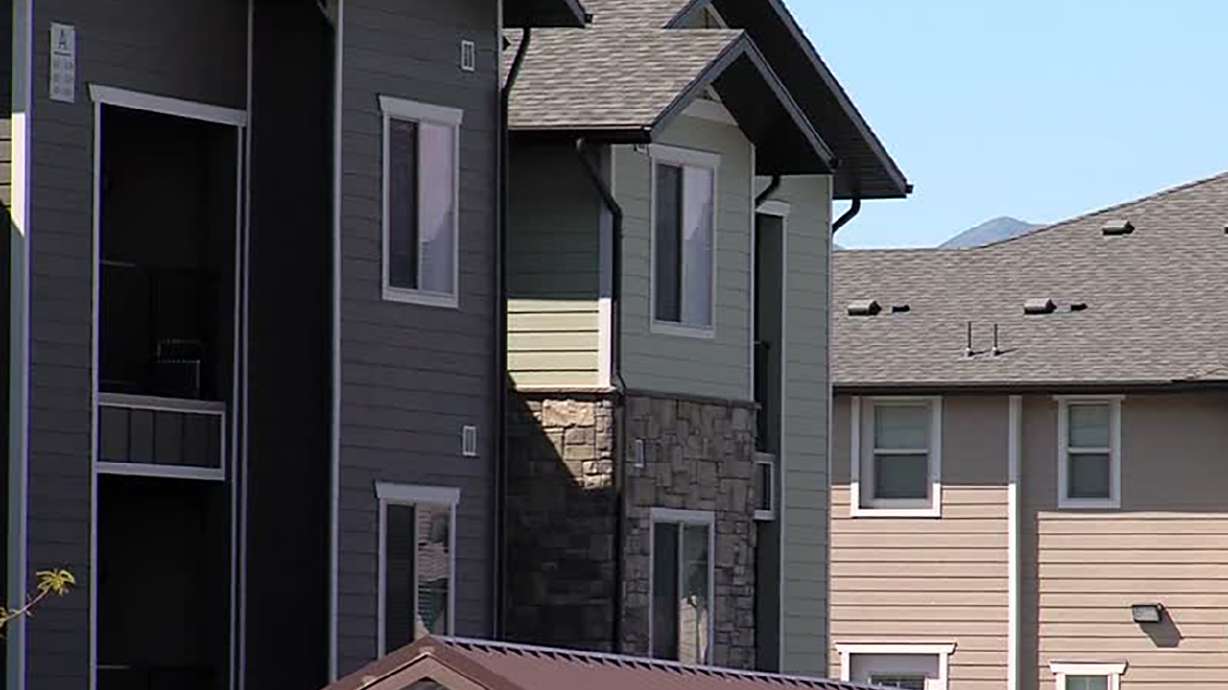Estimated read time: 4-5 minutes
This archived news story is available only for your personal, non-commercial use. Information in the story may be outdated or superseded by additional information. Reading or replaying the story in its archived form does not constitute a republication of the story.
SALT LAKE CITY — Peter Herbertson, program manager of Salt Lake County's Aging and Adult Services, said he and his team have noticed the number of calls from Utah's elderly population struggling to keep a roof over their heads has increased at an alarming rate over the last two years.
And yet, programs and funding are limited.
"We all shudder a little bit when we get the call for affordable housing," Herbertson said. "There's just not a lot of options out there for them."
Not long ago, Herbertson said a 65-year-old woman who was blind made her way to the Salt Lake County Mayor's Office looking for help. She had lived in her apartment for at least 10 years but was facing eviction because she finally reached a breaking point after her landlord raised her rent too high. She had three days before eviction, he said.
"All we could do was support her. … We did the best we could," Herbertson said, lamenting that today he and his team "still don't know what happened to her."
Hebertson and other housing and homelessness advocates on Wednesday painted a gloomy picture for state lawmakers sitting on the Economic Development and Workforce Services Interim Committee, spotlighting how Utah's affordable housing crisis has impacted the state's senior population.
The interim discussion came after the Utah Legislature this year passed a bill encouraging cities to plan and zone for more affordable housing options in communities — but only after stripping $24 million from the bill meant to fund construction of more units to the dismay of homeless and housing advocates. Lawmakers aren't expected to take up the issue again until the next legislative session.
As more of Utah's baby boomer population begins to retire, Paul Leggett, division director of Salt Lake County's Aging and Adult Services, said his agency has "really seen an increase in calls" from seniors seeking help for housing or rental assistance, particularly over the last two years.
"The calls we get now are so much more complex and complicated," Leggett told lawmakers, and yet his team struggles to find ways to help those on fixed incomes and those who are not necessarily homeless yet.
"I'm not talking about chronically homeless seniors," Leggett said. "I'm talking about seniors living on fixed incomes, where five or 10 years ago their income was enough for (market value housing,)" he said.
But now, with rents rising by hundreds of dollars, he said more and more of Utah's elderly are getting priced out.
And wait lists for subsidized housing or other units are two years out, he said.
"Fixed income means just that," Leggett said. "When rents go up from $800 a month to $1,100 a month, there's really no wiggle room in their budget."
Related story:
The number of Utahns between the ages of 55 and 64 that have reached out for help from Utah homeless services has steadily risen from 923 in 2011 to 2,088 in 2018, according to data presented by June Hiatt, director of policy and advocacy for the Utah Housing Coalition.
"We're seeing this as a growing trend, and it's likely to increase if we don't address it," Hiatt told lawmakers.
Matt Minkevitch, executive director of the Road Home, also told lawmakers his shelters have seen a 100 percent increase in the number of people 60 years or older seeking help at the Road Home.
Nearly 11 percent of Utah's population is 65 years or older as of 2018, and nearly 7 percent of households in Utah led by someone over the age of 65 live below the poverty level, according to the Utah Housing Coalition.
Hiatt said a number of factors are likely aggravating housing affordability for seniors, on top of a shortage of affordable housing and senior housing availability and fixed incomes. Those include mortgage debt, cost of health care, declining physical or mental health, she said.
Hiatt urged lawmakers to consider an array of policy changes to help Utah's seniors, including increasing resources to prevent eviction, creating funding sources for rent gap financing, increasing funding for senior housing and increasing management support for seniors.
All that and a "big check to affordable housing" would make a big difference, Hiatt said, hinting at the $24 million fiscal note stripped out of last year's affordable housing bill, drawing scattered laughs.
"We're working on it," said the bill's sponsor, Sen. Jake Anderegg, R-Lehi. "We're working on it."
Hiatt also suggested Utah review its law prohibiting any more than three unrelated people living together as roommates in one household — a law that could help seniors afford to stay in neighborhoods if they room together.
"Let's create some Golden Girls in our neighborhoods," Hiatt said.
Tuesday's committee didn't take any action but welcomed more discussion during the interim.










